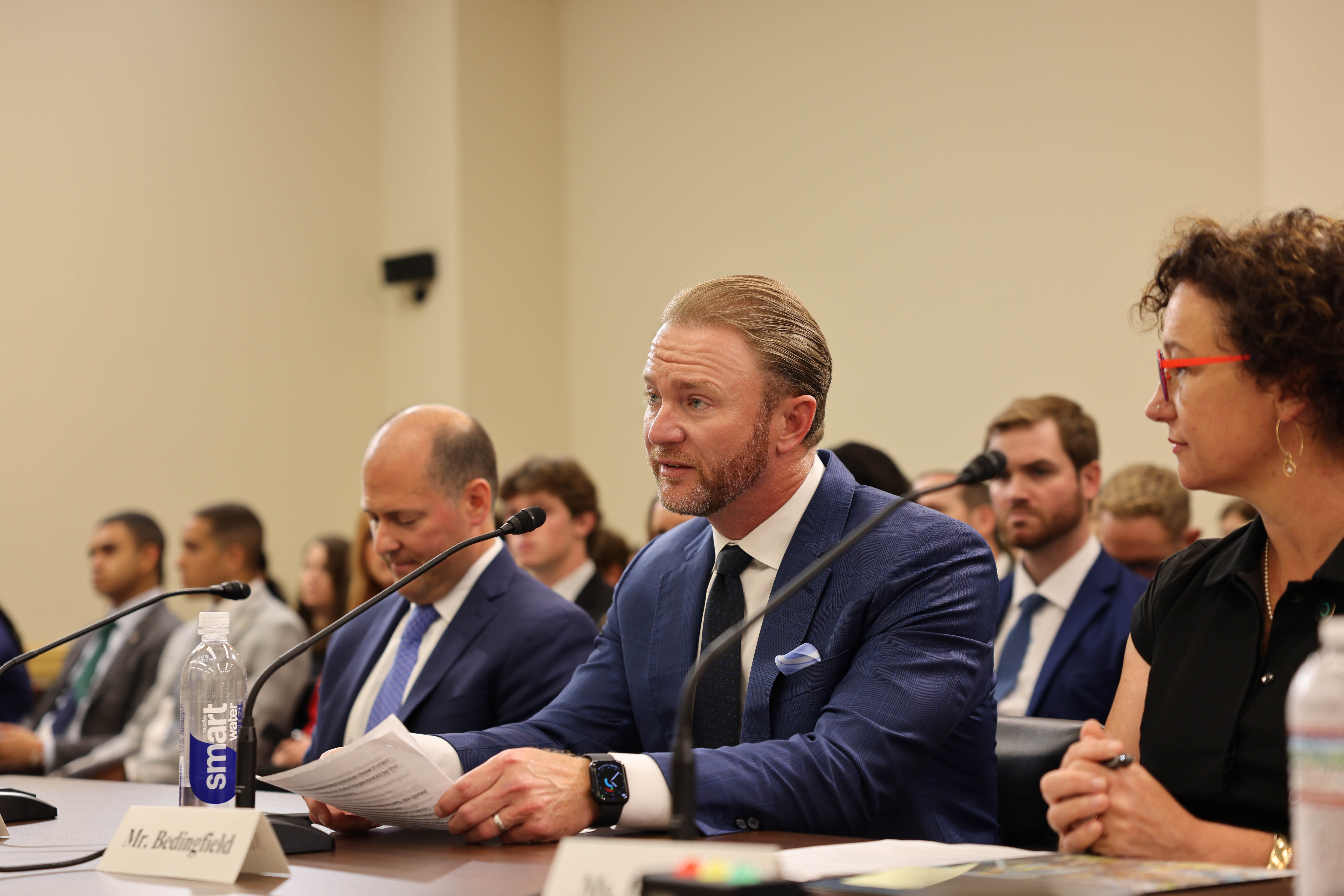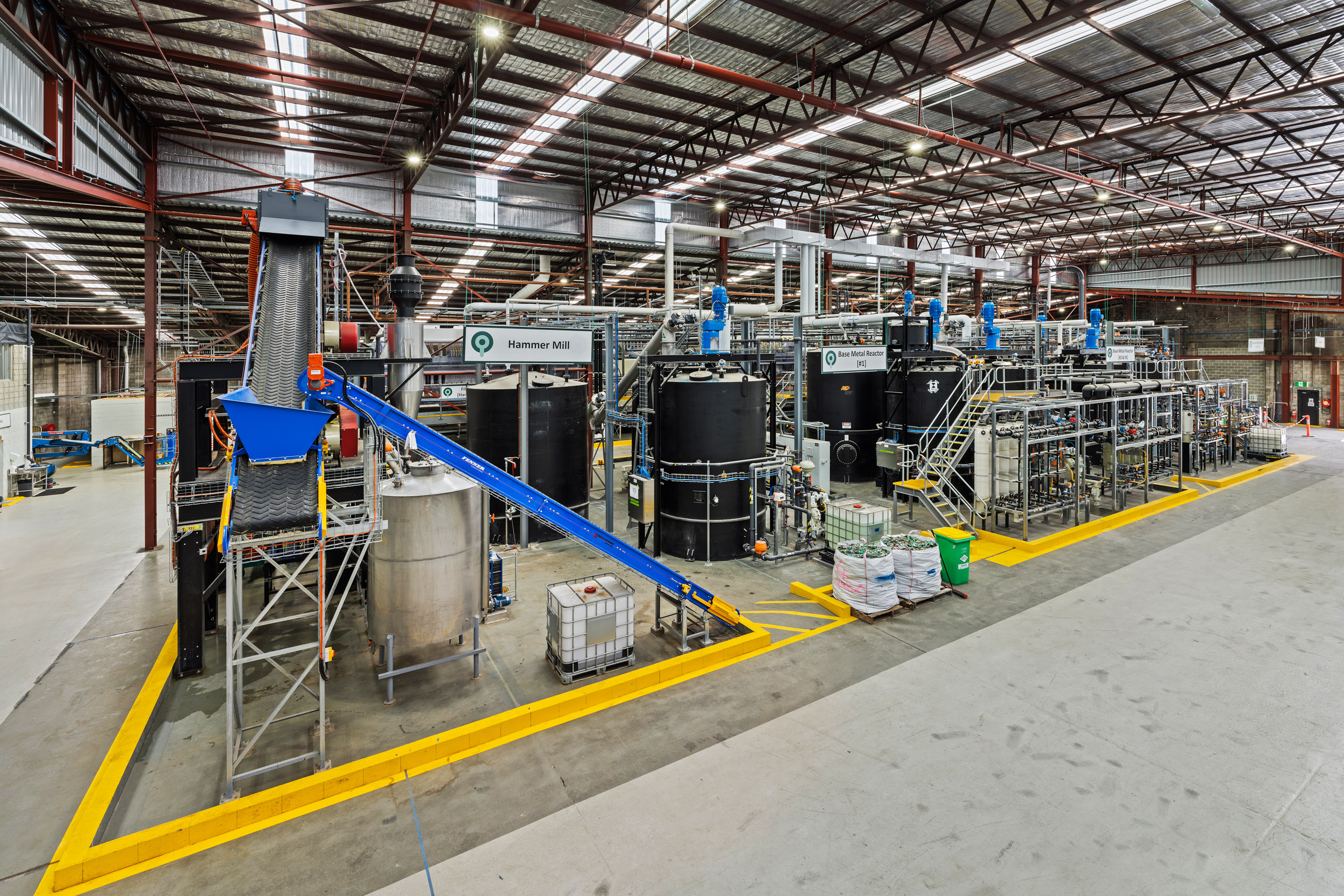On July 16, 2025, Mint Innovation, a global clean technology leader in metal recovery, testified before the U.S. House of Representatives Energy & Commerce Committee, Subcommittee on Environment, calling for federal policy that supports onshore recycling innovation, education campaigns to build trust and public awareness and increasing investment in scalable recycling infrastructure to process e-waste onshore.
Matt Bedingfield, President of Mint Innovation, spoke about the opportunity to unlock the “urban mine,” where electronic waste is a valuable source of critical and strategic metals. He emphasized how innovations in recycling and metal recovery can deliver a secure, domestic supply of metals for U.S companies that are reshoring manufacturing activities. Mint’s proven printed circuit board technology offers a clean, commercially viable solution that is already deployed internationally.
“To support domestic manufacturing and reduce dependency on foreign supply chains, the U.S. must invest in alternative, onshore sources of refined metals.", said Bedingfield, "One of the most immediate and scalable opportunities lies in recovering these materials from e-waste."

The environmental and economic cost of inaction
In 2022, the United States generated 7.9 million metric tons of e-waste containing more than $10.6 billion in recoverable metals like copper, gold, and palladium. However, only 15–20% was recycled through certified domestic channels and an estimated 340,000 metric tons of e-waste was exported, much of it ending up in countries with minimal environmental oversight. The remainder was sent to local landfill.
With the electrification of the economy and growth in Artificial Intelligence (A.I) these numbers will increase significantly. AI-driven data infrastructure alone could generate between 1.2 and 5 million metric tons of additional e-waste by 2030. Being a global leader in A.I, the U.S. will likely responsible for up to 1.5 million metric tons annually that is not currently factored into forecasted volumes. The U.S. remains ill-equipped to manage this growing waste stream at scale, highlighting the need for scalable, circular solutions for onshore e-waste management to address this challenge effectively.
What this means:
- Loss of critical materials that support domestic manufacturing.
- Environmental pollution from landfilled and improperly handled heavy metals.
- Missed economic opportunity and high quality job creation.
- Supply chain vulnerabilities that impact national resilience.
Despite growing urgency, the U.S. still lacks an adequate national e-waste recycling standard or mandate - leaving critical gaps in infrastructure, policy, and economic opportunity.
Mint’s scalable, clean tech solution
Mint Innovation presented its printed circuit board (PCB) processing facilities as a blueprint for modern, decentralized infrastructure that can be quickly scaled across the globe. This includes creating solutions for both electronic waste and lithium-ion batteries (LIBs).
Each facility:
- Processes 8,000 metric tons of PCB waste annually and will be optimized to process LIBs as well.
- Recovers market-grade metals through a non-toxic, low-emissions process.
- Operates at a fraction of the cost of legacy smelting systems.
- Build time of c. 12 months in standard industrial zones.
- Supports circular manufacturing and local job creation.
“This is about reclaiming value we’re currently burying or shipping overseas”, said Bedingfield. “E-waste recovery is a fast, effective lever to reinforce supply chains, decarbonize industry, and deliver economic benefits to American communities.”

Supporting Federal Action
Mint Innovation also voiced support for Congressional measures such as the Unearth America’s Future Act and the Critical Minerals Consistency Act, which aim to expand access to advanced recycling technologies and secure critical mineral supply chains.
With demand surging for semiconductors, EVs, and AI infrastructure, Mint supports domestic e-waste recovery is not just a climate solution, it’s a key part of national resilience, industrial competitiveness, and environmental protection.
Read the Wall Street Journal summary here
Watch full testimony here
For media inquiries or to schedule interviews, please contact:
Renee Jameson
Renee@mint.bio
+64 21 1409847


.jpeg)